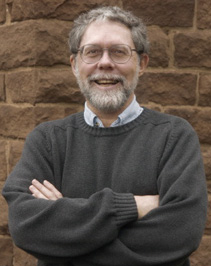National Science Foundation Supports Undergraduate Science, Astronomy Research
| Posted 03/16/07 |
 Bill Herbst, John Monroe Van Vleck Professor of Astronomy and chair of the Astronomy Department, has received a $330,990 grant from the National Science Foundation (NSF) that will benefit Wesleyan and the seven other elite liberal arts member institutions in the Keck Northeast Astronomy Consortium (KNAC). Bill Herbst, John Monroe Van Vleck Professor of Astronomy and chair of the Astronomy Department, has received a $330,990 grant from the National Science Foundation (NSF) that will benefit Wesleyan and the seven other elite liberal arts member institutions in the Keck Northeast Astronomy Consortium (KNAC).
Along with Wesleyan, the other KNAC institutions covered by the funding are Colgate University, Haverford College, Middlebury College, Swarthmore College Vassar College, Wellesley College and Williams College. The funding allows the schools in the consortium to continue their summer research program for undergraduates, which has been in existence for 17 years. “Since this program began almost two decades ago, we have provided approximately 175 summer research experiences for our students, Herbst, pictured right, says. The program has been very successful in engaging students with astronomical research and sparking long-term interest in science. In fact, nearly half of these students have gone on to graduate school and most are pursuing science-oriented careers. Herbst adds that, since the program was begun, nearly half of the KNAC students have been female. Were also seeking to include more students from underrepresented minorities, and from schools in the northeast where participation in astronomy research is not possible,” he says. The 10-week summer research program sponsored by KNAC and the NSF grant provides opportunities for 12 students to work at a KNAC institution. However, to promote educational diversity, students from consortium schools cannot do research at their own institutions during the 10-week program. The program also reserves two to four spaces each year for students from institutions outside the consortium. The idea is to provide more real research opportunities to students and expand their astronomy education at all levels while also increasing collegial interactions among faculty and students, Herbst says. In the fall, all the KNAC faculty, mentors and participating students, including those who have been accepted to the program but have not yet begun research, are invited to a Student Symposium. KNAC-supported students from the summer give a 10-minute presentation on their research. There are also presentations by invited speakers, a poster session and a publication of the proceedings, which are distributed throughout the astronomical community. Were very excited to receive this grant, which is vital to KNAC, Herbst says. KNAC has evolved into a great model for other small college astronomy departments of how a regional consortium can be created and managed to successfully address the issues of size and limited resources. |
| By David Pesci, director of Media Relations. Photo by Bill Burkhart. |

